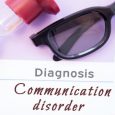Fibromyalgia is misunderstood by many peoples, because it has no cure, only symptoms that can be mitigated. There is still a lot to learn about the condition. Thankfully, recent developments have made living with fibromyalgia easier than before. Managing the symptoms can help you return to the life you deserve with no complications.
Fibromyalgia is a condition that causes chronic pain throughout the body. According to many experts “fibromyalgia causes the brain to sense higher pain levels, but the exact cause is unknown”.

Here are some of the best ways to get rid of fibromyalgia symptoms.
What Is Fibromyalgia?
Fibromyalgia is a disorder that causes musculoskeletal pain, problems going to and staying asleep and other complications. A popular theory about why fibromyalgia begins is that there is an improper connection in the brain with pain processing. Some triggers include physical traumas, infection, other diseases and psychological distress.
Fibromyalgia Symptoms
Here are the common symptoms of the disorder:
- Pain in head, neck, shoulders, elbows, chest, hips, and knees. Pain can be spread or isolated to certain regions.
- Fatigue
- Sleep problems
- Headaches
- Trouble concentrating and with memories
- Tingling in the extremities
- Numbness
Now, how can you lessen these symptoms? Let’s find out.
1. Get Enough Sleep
Stay well rested with help you with combating chronic fatigue. In order to maximize your hours of restorative sleep, do the following:
- Minimize napping throughout the day
- Go to bed and wake at the same time every day
- Limit noise and light in the bedroom
- Avoid blue light from electronics before bedtime
- Eat at least 2-3 hours before sleep
- Avoid caffeine and alcohol before bed
2. Stay Active
Building up muscle strength has been linked with reducing pain in the body. One Cochrane systematic review found that regular aerobic activities, such as walking, cycling, and swimming, can improve quality of life for those with fibromyalgia. Such activities also help with reducing fatigue, stiffness, and pain.
Another study found the patients with fibromyalgia who committed to a 15-week long program reversed the unusual brain activity that often affects people with the disorder while the brain is resting.
3. Reduce Stress
Since stress will worsen symptoms, you should focus on stress management and relaxation techniques. The most suggested ways to reduce stress include:
- Staying connected with supportive family and friends
- Joining a group for people with fibromyalgia
- Journaling
- Meditation
- Arts and crafts (and any other hobbies you enjoy)
- Exercise
- Yoga and Tai Chi
Another way to promote a stress-free life is to tackle any psychological distress with cognitive-behavioral therapy (CBT). This kind of therapy can teach you how to change the way you think about life, including the symptoms of fibromyalgia, and help you manage your pain more effectively.
4. Acupuncture
This traditional Chinese medicine helps increase circulation, reduces pain, and even changes chemical levels in your brain to relieve discomfort caused by musculoskeletal disorders and conditions like fibromyalgia. A number of studies found that acupuncture can be beneficial to people suffering from the disorder, since it can improve pain and stiffness in the joints.
If you don’t like the idea of needles, massage is just as beneficial for fibromyalgia. Why not try both?
There are many modalities for lessening fibromyalgia pain and controlling the symptoms. While you cannot get rid of fibromyalgia completely, you can take back your life by working through the pain with exercise, rest, and some acupuncture or massage.




